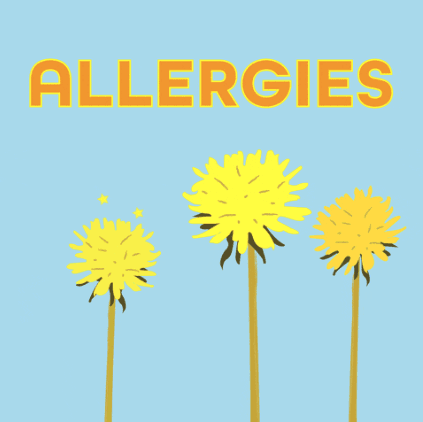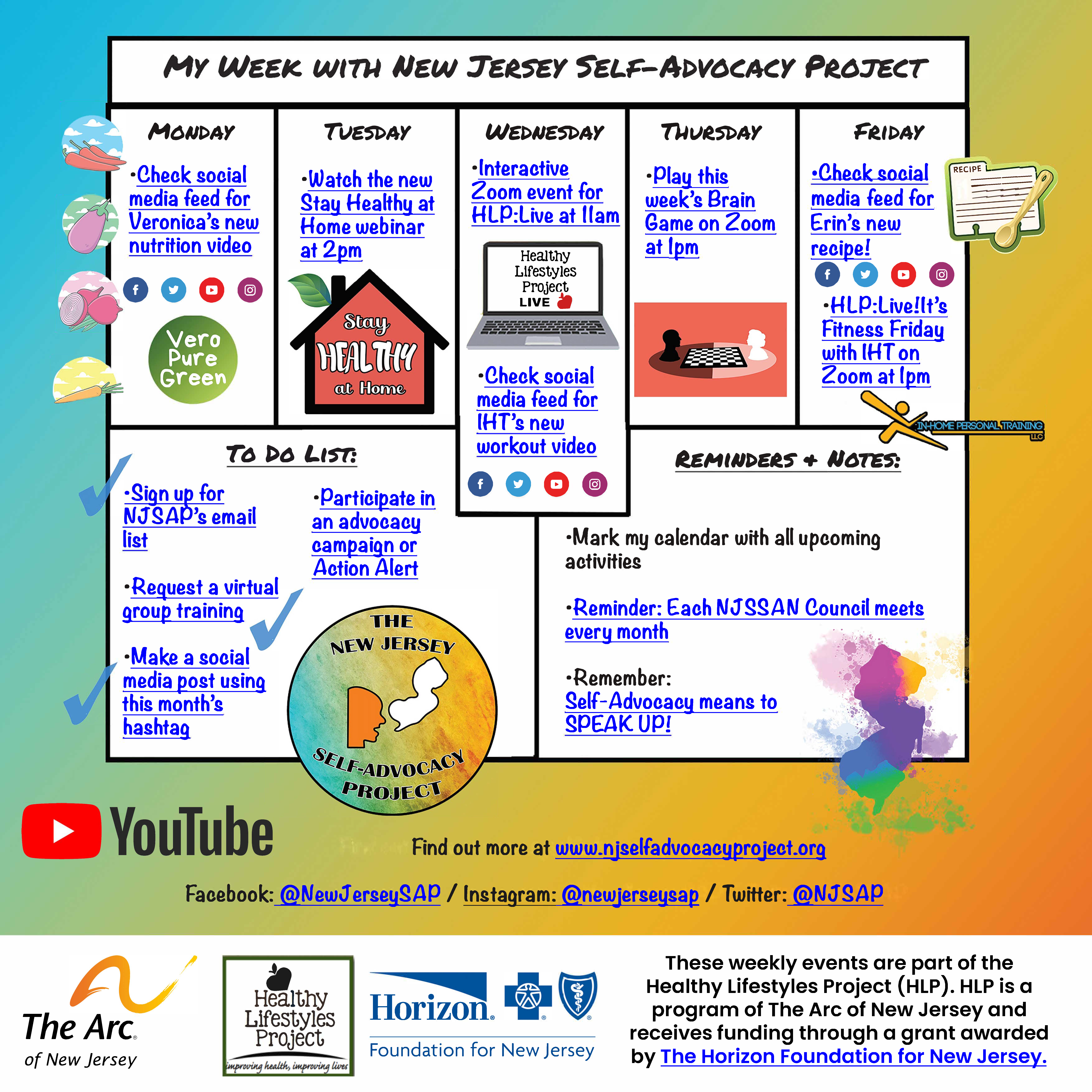
Welcome to the Positive Pulse blog! Check in with us each month for tips on healthy living, right on our website. A short snippet will be featured in the NJSAP monthly newsletter as well, which you can sign up for here.
This month’s topic is allergies. Allergies are one of the most common chronic diseases. A chronic disease lasts a long time or occurs often. An allergy occurs when the body’s immune system sees a substance as harmful and overreacts to it. The substances that cause allergic reactions are allergens. When someone has allergies, their immune system makes an antibody called immunoglobulin. These antibodies respond to allergens. The symptoms that result are an allergic reaction.
There is no cure for allergies. You can manage allergies with prevention and treatment.
More than 50 million people in the U.S. experience various types of allergies each year. They are the sixth leading cause of chronic illness in the U.S.
Types of Allergens include:
- Medicine, Food, Latex, Mold, Pollen/Plants
- Insects
- sting (bee, wasp, fire ant);
- bite (mosquito, tick);
- household pests (cockroach and dust mite)
- Pet (dog or cat urine, saliva and dander)
The severity or symptoms during an allergic reaction can vary widely. Some or the symptoms of an allergic reaction include:
• Itchy, watery eyes, Itchy nose, Sneezing, Runny nose
• Rashes, Hives (a rash with raised red patches)
• Stomach cramps, Vomiting, Diarrhea, Bloating
• Swelling, Redness, Pain
• Tongue swelling, Cough, Throat closing, Wheezing (a whlslllng sound when you breathe)
• Chest tightness and losing your breath, Feeling faint, light-headed or blacking our
• A sense of impending doom
Anaphylaxis (anna-fih-LACK-sis) is a serious allergic reaction that is rapid in onset and may cause death. Epinephrine (ep-uh-NEF-rin) is the most important treatment available.
If you have a known severe allergy, always carry two epinephrine auto-injectors so you can quickly treat a reaction wherever you are. Promptly inject the medicine at the first sign of an anaphylactic reaction. Call 911 to go to a hospital by ambulance. You must seek medical care immediately – even if you feel better – because symptoms can recur. You may need other treatments, in addition to epinephrine.
You can manage your allergies by using antihistamines, decongestants, or allergy shots, whatever your doctor suggests is the right fit for you. The easiest way to avoid an allergic reaction is to stay away from the allergen that bothers you. Depending on the allergen, this is easier said than done.
For food allergies: Most food manufacturers must list all major food allergens on their labels. This can be done in several ways:
- Listing an ingredient by its common name (“shrimp”)
- Putting the allergen in parentheses (“whey (milk)”)
- Providing a “contains” statement next to the ingredient list (“This product contains tree nuts.”)
While many manufacturers issue advisory warnings about cross-contact (“This product might contain peanuts.”), they are not mandatory. Finding substitutes for food you are allergic to is a must.
For pet allergies: There are no totally nonallergenic dogs or cats. If you have a pet allergy, the best strategy is to avoid or reduce exposure to the animal as much as possible. Medications or other treatments may be necessary to relieve symptoms and manage asthma. If you have strong pet allergies, try a pet reptile, amphibian or fish instead!
- Low-allergen and low shedding dogs: Basenji, Bedlington Terrier, Schnauzer, Airedale Terrier, Bichon Frisé, Chinese Crested, Kerry Blue Terrier, Poodle, Portuguese Water Dog, Soft Coated Wheaten Terrier, West Highland White Terrier
- Lower-shedding cats: Bengal, Burmese, Colorpoint Shorthair, Cornish Rex, Devon Rex, Javanese, Ocicat, Oriental Shorthair, Russian Blue, Siamese, Sphynx
For plant allergies:
You can expect more plant pollen and seasonal allergies if you put any of these plants in your yard.
- Flowers/herbs
- Amaranth (pigweed), chamomile, chrysanthemums, daisies, ordinary sunflowers
- Shrubs/vines
- Cypress, jasmine vine, juniper, wisteria
- Trees
- Alder, ash (male), aspen (male), beech, birch, box elder (male), cedar (male), cottonwood (male), elm, hickory, red and silver maples (male), mulberry (male), oak, olive, palm (male), pecan, pine, poplar (male), sycamore, walnut, willow (male)
- Grasses
- Bermuda, fescue, Johnson, June, orchard, perennial rye, redtop, salt grass, sweet vernal, timothy
- Weeds
- Cocklebur, ragweed, Russian thistle, sagebrush
SOURCE: https://www.aafa.org/allergy-symptoms/
https://www.webmd.com/allergies/best-worst-plants
https://www.petmd.com/dog/wellness/evr_multi_hype_of_hypoallergenic_pets

